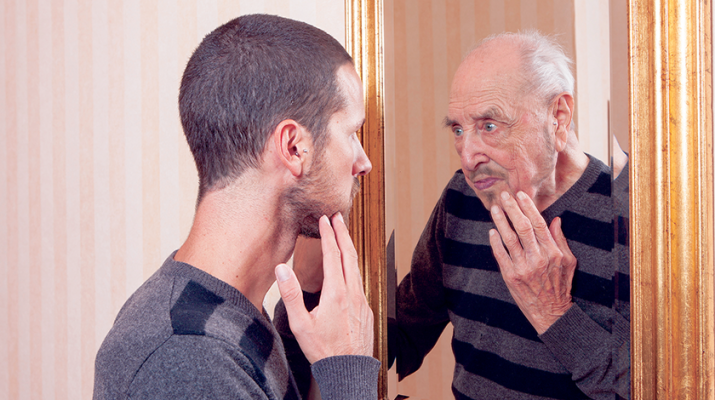Normal and not-so-normal signs of aging
By Barbara Pierce
 You might be familiar with the subtle physical changes that come with aging. Maybe your hearing isn’t what it used to be, you have more aches and pains, your body isn’t as flexible as it was, or you don’t have as much energy.
You might be familiar with the subtle physical changes that come with aging. Maybe your hearing isn’t what it used to be, you have more aches and pains, your body isn’t as flexible as it was, or you don’t have as much energy.
Many think that the older you get, the more goes wrong, so all you can do is just bite the bullet and accept it. But getting older doesn’t mean that you should just accept declining health and abilities.
Don’t accept a decline in your functioning, said Joe Martin, founder and CEO of Function Better Physical Therapy in the Mohawk Valley. You are as capable of improving your strength, endurance, energy, mobility, flexibility, and balance as you were in your 30s and 40s.
You can age successfully, he noted. You have great influence on how you are able to function for the rest of your life. But it doesn’t just happen.
The way we live our lives influences how we age: — the things we’re exposed to, the things we eat and how much we exercise.
“Exercise is the miracle drug that people need to open their eyes to,” Martin said. “Exercise is the fountain of youth!”
“Avoid the ‘cycle of demise,’” Martin recommends. When one thing goes, other things are sure to follow. For example, you have a bad knee and it hurts to walk or climb stairs. So you walk a lot less and avoid stairs.
Moving less causes your joints to stiffen and your muscles to shorten. So when you do have to walk, you walk with joints that don’t move correctly and inflexible muscles. You limp around. That causes diminished balance, which might cause you to fall and end up in the hospital. There, you lie in a bed, everything becomes stiff and less mobile, your bones weaken and you might even get pneumonia from not moving. You get the picture.
Identify anything that goes wrong early and correct it right away. Never wait or hesitate, cautions Martin.
“Even people in their early 20s decline when they are less active,” he said.
Here are some not-normal changes for which you should see your doctor:
— Joint pain related to osteoarthritis) is highly common. If your joints hurt, don’t brush it off as an inevitable part of getting older. Make an appointment with your doctor because it can come from many conditions, or you could have injured something.
For most arthritis types, there are lifestyle changes, medications and procedures that can help.
— Pain is not a normal sign of aging. While pain is common among older folks, it’s not inevitable. Many grow old with little or no pain. If you’re hurting, see your doctor.
Many older people avoid pain medication and stoically tolerate their pain. With the crisis in opioid addiction, their caution is not unwarranted. Don’t avoid using pain-killers when you need them to remain comfortable and active, but it is important to use them as directed.
After surgery, pain can interfere with your ability to do things to prevent complications, such as coughing, deep breathing and walking, so treating pain is important for successful recovery.
Recoup your energy
— Loss of energy: You might associate growing old with slowing down, but you shouldn’t expect to always feel tired. Fatigue can signal many conditions; in older adults, it’s often a sign of undiagnosed anemia.
You might associate growing old with slowing down, but you shouldn’t expect to always feel tired. Fatigue can signal many conditions. In older adults, it’s often a sign of undiagnosed anemia, or a low red blood cell count. Anemia of chronic disease is especially common among people over 65.
In general, see your doctor if you’re feeling worn out and sleep just isn’t cutting it.
— Loss of bladder control: As you get older, your bladder becomes less elastic, meaning it can’t stretch to hold urine as easily. Bladder muscles may weaken, and some medical conditions can cause short-term incontinence. Tell your doctor if symptoms last.
Kegel exercises, medical devices, medication, and cutting tobacco, alcohol and caffeine all may help. Electrical stimulation of bladder nerves or surgery may be appropriate.
— You’re having less sex: Many older adults don’t speak up about loss of libido or decreased sexual function. Often, health care providers don’t ask.
But your sex life offers important clues about your overall health. For one, erectile dysfunction can be an early warning sign of heart problems. Speak up if you have a hard time getting or keeping an erection.
Function Better operates in seven locations including Clinton, Herkimer, New Hartford, Oneida, Rome, Utica, and Yorkville. For more information, see www.functionbetter.com/.

